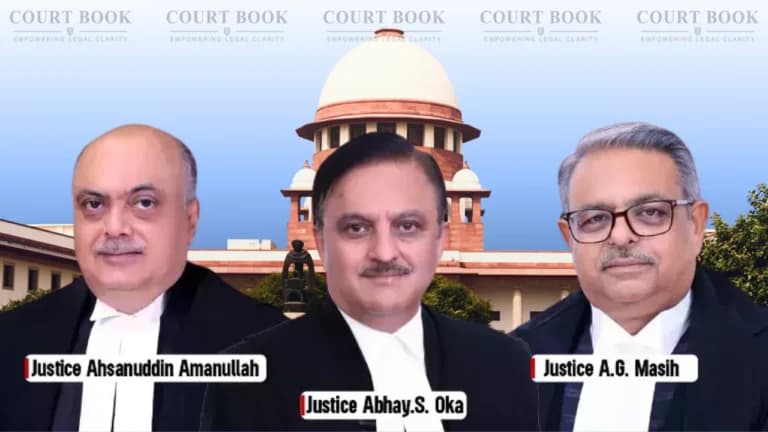The Supreme Court recently dismissed appeals against the Allahabad High Court’s decision, which held that the Air Force School in Bamrauli, Allahabad, is not a “State” or “authority” under Article 12 of the Constitution. As a result, writ petitions filed by the school’s teachers against their dismissals are not maintainable under Article 226 of the Constitution.
A bench led by Justice Abhay S. Oka and Justice Augustine George Masih upheld the High Court’s view, while Justice Ahsanuddin Amanullah gave a dissenting opinion.
Read also: SC Collegium Recommends New Chief Justices for Five High Courts
“A finding of fact was recorded that there is no material to show that the Government or the IAF has any control over the management of the school. It is not possible for us to take a contrary view,” the majority observed.
The case arose from two appeals by teachers challenging their dismissals. They argued that the Air Force School was established by the Indian Air Force (IAF) and managed by the Indian Air Force Educational and Cultural Society, which is registered under the Societies Registration Act. They cited documents claiming the school was fully funded by the IAF, constructed with public funds, and operated under Air Force pay scales and supervision.
However, Additional Solicitor General Aishwarya Bhati, representing the Union of India, argued that Air Force Schools are managed using Non-Public Funds voluntarily contributed by IAF personnel. The school does not receive government funds or come under statutory control. Staff are hired on private contracts, and the school operates independently of government regulations.
Read also: Centre Appoints 7 Advocates as High Court Judges Across India
Justice Oka, writing for the majority, stated that the Air Force Educational and Cultural Society is a non-profit welfare body. The school is primarily funded by fees from students and contributions from Air Force personnel’s welfare funds.
“Though the IAF officers serve ex-officio on its governing committees, there’s no evidence of statutory control or recurring government grants. The school follows pay scales and education codes issued by the IAF, but these are not legally binding,” Justice Oka noted.
The majority opinion concluded that the relationship between the teachers and the school is contractual, involving no public law element. They relied on cases like St. Mary’s Education Society v. Rajendra Prasad Bhargava and Army Welfare Education Society v. Sunil Kumar Sharma to support this conclusion. Thus, the teachers’ writ petitions under Article 226 were dismissed.
Read also: SC Collegium Recommends Three High Court Judges for Supreme Court Elevation
Justice Amanullah, in his dissent, held that the Air Force School is amenable to writ jurisdiction. He noted that the school was created by the IAF as a welfare initiative, with its management dominated by serving IAF officers. These officers had control over key decisions, including recruitment, pay, and disciplinary actions.
“The control exercised by the IAF is not merely regulatory but deep and pervasive, involving even day-to-day operations,” he said.
Justice Amanullah highlighted that the school was described as “fully financed by the IAF” in a CBSE affiliation application from 1985, and that its buildings were constructed using funds authorized by the Ministry of Defence. He also noted that “non-public funds” were actually welfare contributions overseen or approved by the government, making them essentially public in nature.
“For all practical purposes, in every sphere of activity relating to the School, the funding consists substantially of funds which are ultimately traceable to the public exchequer,” he observed.
He emphasized that imparting education is a recognized public function and that the school’s operation involved public interest, particularly because it served both IAF and civilian families.
“The school’s management by serving IAF officers in official capacity, coupled with its public function of imparting education, is enough to bring it within the High Court’s writ jurisdiction under Article 226,” he concluded.
However, since the majority ruled otherwise, the appeals were dismissed, and the High Court’s decision was upheld.
Case no. – Civil Appeal No. 10899 of 2013
Case Title – Dileep Kumar Pandey v. Union of India & Ors.















